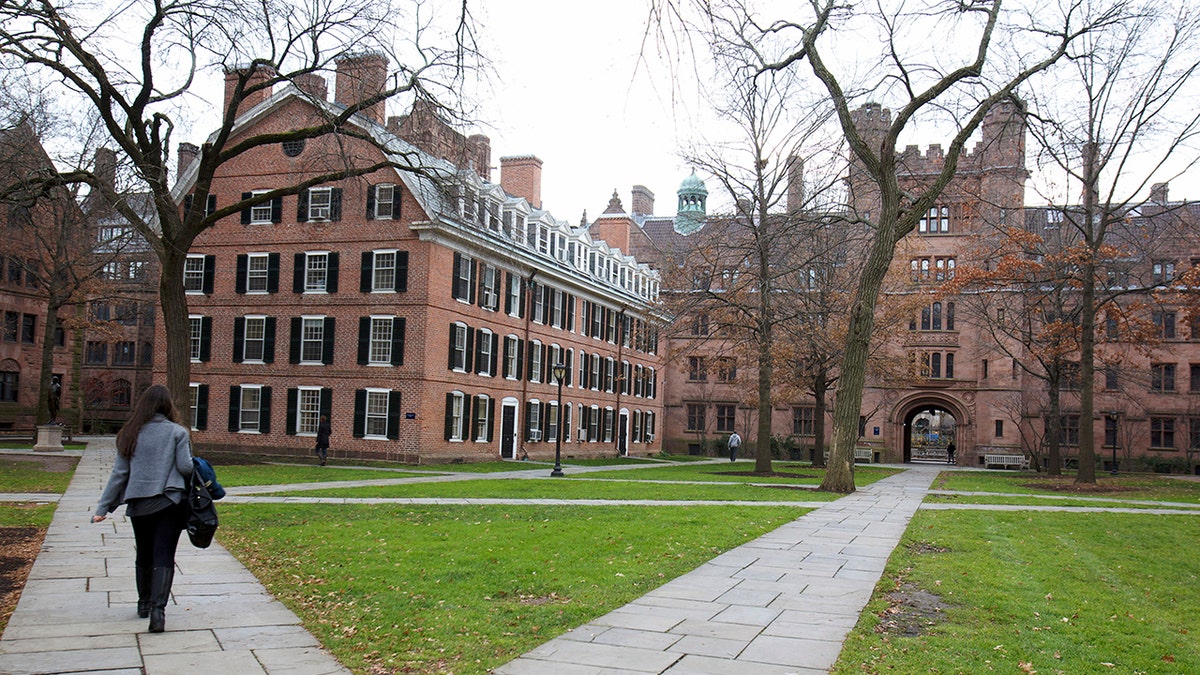
Old Campus at Yale University in New Haven, Connecticut. (REUTERS/Michelle McLoughlin)
A famous conservative group at Yale University known for its long-held tradition of never apologizing for anything is under fire from its own alumni for doing just that.
The Party of the Right, the Ivy League university’s oldest debate group, fanned the flames of controversy last month when it sent out a whip sheet inviting students to debate the topic “Resolved: Reform the Savages.”
“What remains of Civilization will debate the topic,” the whip sheet read. “The Party will colonize the Body of Savages known as the Yale Political Union as it debates the Topic ‘Resolved: Deny Amnesty for Undocumented immigrants.’”
The debate was held on Sept. 28.
According to the Yale Daily News, a photo of the whip sheet was posted online and was quickly condemned as racist by other student groups.
The Association of Native Americans at Yale, in a statement on its Facebook page, condemned “the dehumanization of Indigenous people” in the debate.
“The Party of the Right uses racist imagery and language to portray indigenous peoples as others, as enemies, as inhuman,” the statement said. “While members of the Party of the Right find genocide laughable, people of color continue to suffer from the systemic oppression and historical trauma resulting from colonization.”
Soon after, POR broke with tradition and apologized.
“I would like to issue an apology to those members of Yale’s indigenous community who were hurt by the contents of the whip sheet, which I take fully responsibility for having approved,” POR Chairman Quinn Shephard said in a letter posted online, according to the Yale Daily News. “Many members of my Party, in the wake of the sheet’s completion, objected to the whip sheet itself and I myself regret having allowed the whip sheet to be sent out.”
The move -- the apology, not the issuing of the whip sheet -- angered some of the group’s alumni, notable historical members of which include National Review founder William F Buckley and Federalist Society co-founder Peter Keisler.
In a series of posts in a private Party of the Right Facebook group, former members slammed the “dreadful” apology, which some argued showed a shift in the party’s fundamental culture, politics and values.
“Only good injun is a dead injun,” one alum wrote in a post, according to the Yale Daily News.
One former member of Party of the Right, Karl Notturno – who told the Yale Daily News he left the group because it had become overly concerned with political correctness – criticized the apology.
“They’re not actually apologizing because they’re upset about what they did. They’re apologizing because they don’t want the heat anymore. It strikes me as a little bit intellectually dishonest,” he said. “I am disappointed in Quinn Shepherd for standing down. If you were to ask me if other [generations of the Party of the Right] would apologize, I’d say…they wouldn’t apologize back then.”
Requests for comment from Shepherd or the Party of the Right were not immediately returned.
Shepherd dismissed the comments made by the group’s alumni, however, telling the Yale Daily News, “it is not my role to police them.”
“The foundational principle of the Party of the Right is that the leadership possesses no authority to censor the opinions of the members, including the alumni,” she said.
On Facebook, Elizah Stein, a current party member and former chairman, defended the apology, saying it was a calculated maneuver to ease pressure on the party.
“‘That dreadful apology’ has already changed the narrative, reassured those of our petitioners who might choose to keep petitioning and brought us absolution from most moderates,” she wrote, according to the Yale newspaper. “We do what is necessary to survive.”
Fox News' Caleb Parke contributed to this report.









































